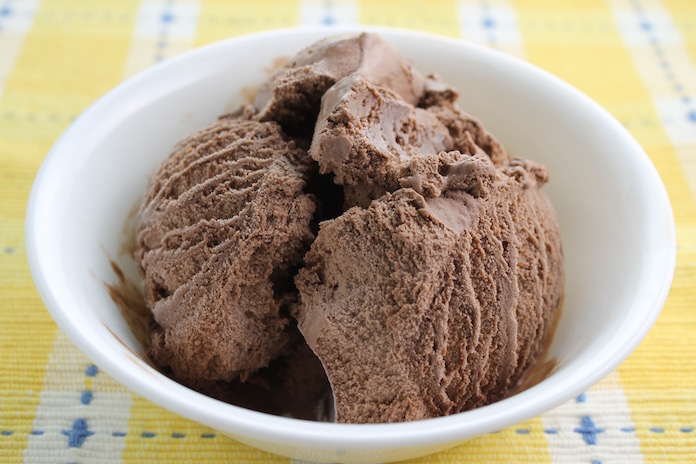The FDA sent a warning letter to Jeni’s Splendid Ice Cream’s frozen flavor base Ohio manufacturing facility on August 9, 2016. The inspection that prompted the letter took place on January 25, 2016 through February 9, 2016. That letter states that “your frozen flavor base products are adulterated” because “FDA laboratory analysis of the environmental swabs found the presence of Listeria monocytogenes (L. monocytogenes), a human pathogen, in your facility. ”

A recall of Jeni’s Splendid Ice Creams was initiated for possible Listeria monocytogenes contamination in April, 2015. All of the company’s ice cream, frozen yogurt, sorbet, and ice cream sandwiches in all flavors and containers were recalled, and all scoop shops were closed. No illnesses were ever reported in connection to these products.
That recall happened at the same time that a deadly Listeria outbreak was linked to Blue Bell Creameries products. In the Blue Bell outbreak, 10 people were sickened and three people died. That outbreak highlighted the fact that pathogenic bacteria can be present in food products not usually associated with food poisoning risk.
Listeria bacteria can take hold in food establishments with a lot of wet surfaces. The bacteria also grows and thrives in cool temperatures; in fact, Listeria grows at refrigerator temperatures and freezing does not kill it. The bacteria can also form biofilms, which protect them against cleaning materials.
And Listeria infections can be serious and deadly. About 16 to 30% of those who contract this infection die. That’s why there is a zero tolerance policy for Listeria monocytogenes in any ready-to-eat foods.
The bacteria is usually found on wet floors and in floor drains, not necessarily on food contact surfaces. But there is always the possibility that some contact will occur between those areas and food. In fact, the FDA’s warning letter to Jeni’s states, “FDA collected environmental samples from various areas in your processing facility including areas that are in close proximity to food and food contact surfaces.” The positive samples were found on the floor of the prep room and the floor of the wash room near a drain. Those areas were 9 feet from a prep table, and 2 feet from a sink used to wash and sanitize equipment, respectively.
Whole genome sequencing on the bacteria found that all of the environmental samples were the same strain. The letter states, “the WGS phylogenetic analysis found that there is one strain of L. monocytogenes present in your facility containing isolates that have been found over a period of time. Specifically, two (2) of the environmental isolates collected January 26, 2016, twenty (20) of the environmental isolates collected April 21, 2015, and two (2) of the finished product isolates from the sample of ice cream collected in April 2015, were identical by WGS analysis.” That presence indicates a “resident strain or niche harborage site in the facility.”
Jeni’s responded to the FDA’s letter on March 2, April 14, and April 27, 2016. And the company issued a statement about the warning letter, which stated that “a good Listeria control program” is conducted by searching for bacteria and killing it before it can spread to food contact surfaces, and that they can assure customers that their food is safe. FDA stated that “extensive corrective actions” were taken at the company’s facilities after the recall in 2015.
But FDA inspectors also found “significant violations” of the Current Good Manufacturing Practice regulations for foods during that 2016 inspection. Fans and other air-blowing equipment were not operated in a way that minimizes the potential for contaminating food-contact surfaces. A dust-like material on the guard over the fan in the dish room was found, which was a repeat violation. In addition, some production procedures could possibly contribute contamination.




